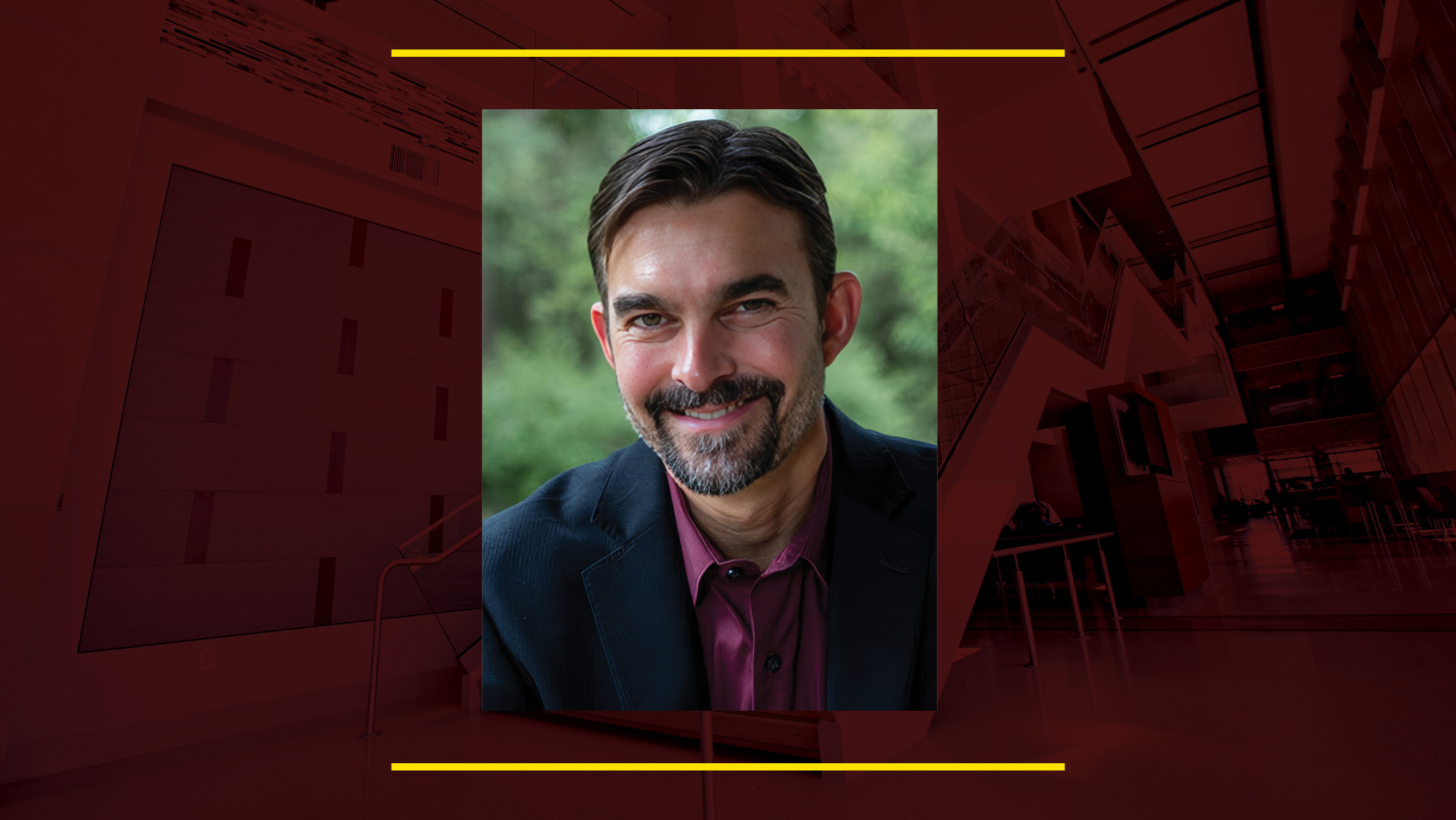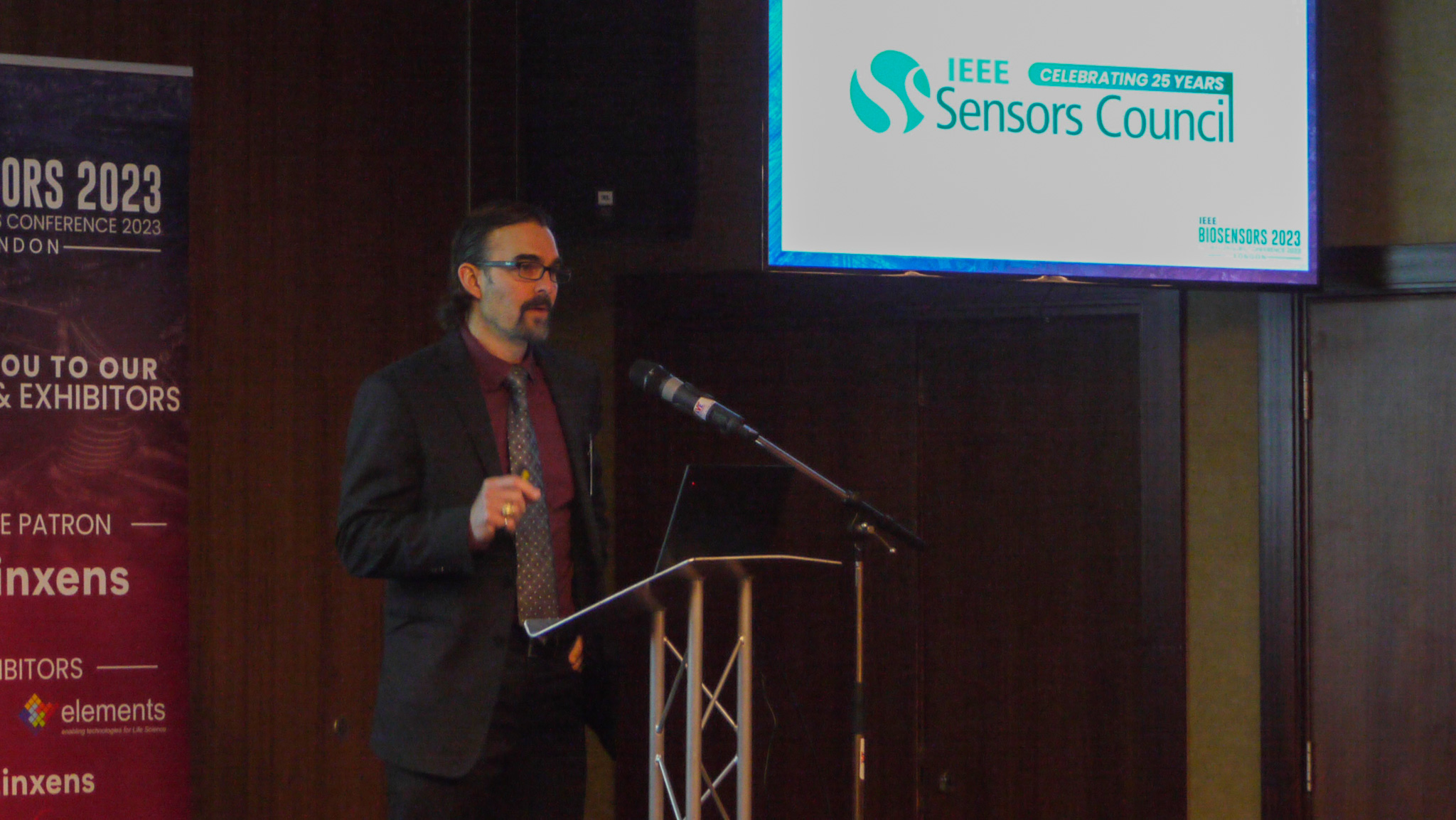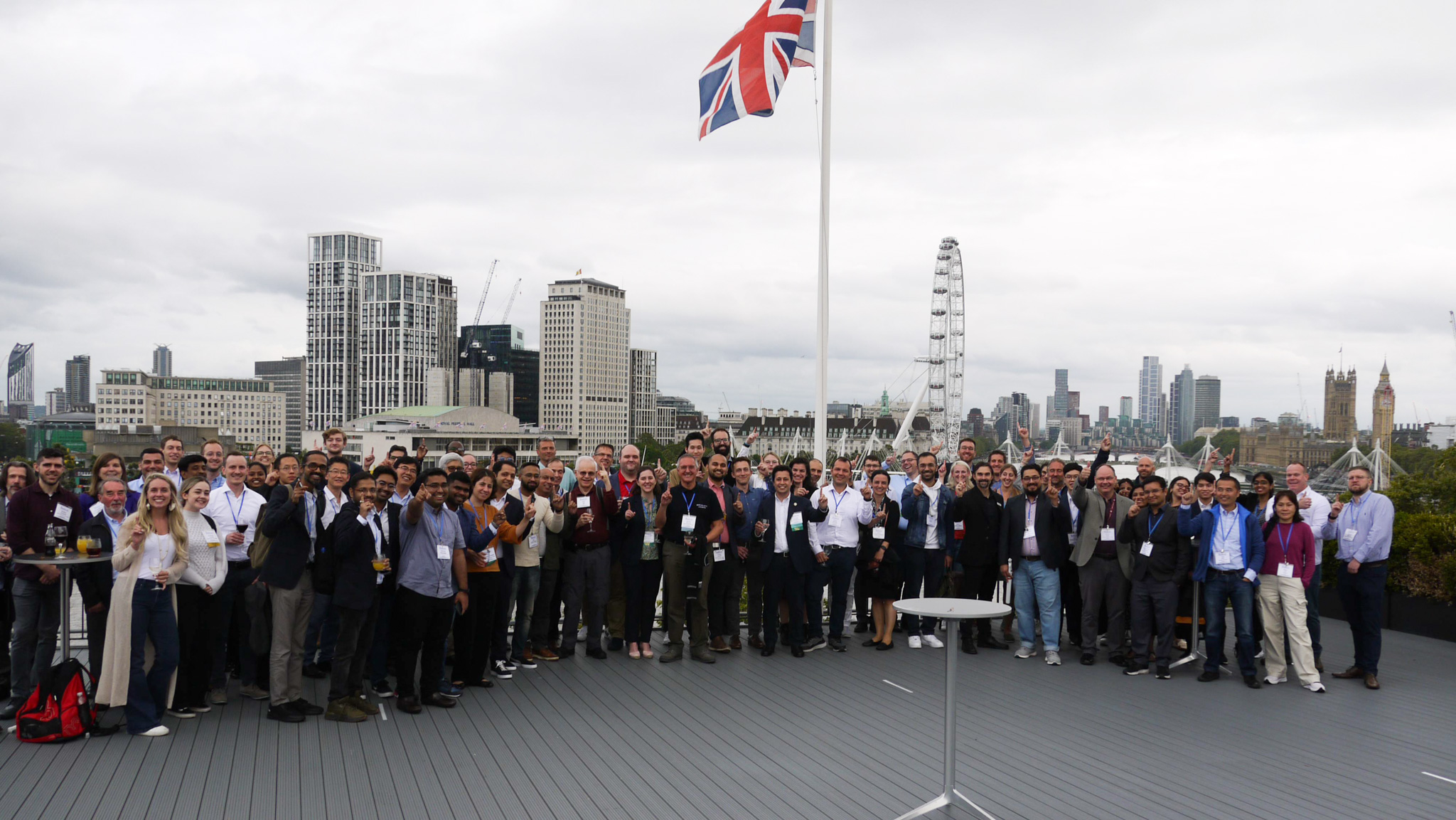
Some faculty members are leaders in their field through groundbreaking math and science, while others emphasize service and mentorship. In 2023, biomedical engineering department head and James J. Cain Professor II Dr. Mike McShane made his mark with a balance of impactful research and service.
IEEE BioSensors Conference
Recognizing a need for community in biosensors, the IEEE Sensors Council developed the IEEE BioSensors Conference and hosted its inaugural meeting last summer. Chaired by McShane, the conference aims to be the premier forum for reporting the latest research, development and commercialization results of modern biosensor technology.
"We wanted to get biosensor researchers together to talk about their progress, critique one another and stimulate ideas," McShane said. "Often, these conversations help us see our own work differently, including identifying new experiments we need to perform to test our devices. Sometimes, these things result in new project ideas and collaborations. It pushes the field forward because the community is talking about what they're doing and getting feedback from other experts in the field."

As the inaugural technical program chair, McShane's goal was to establish a high standard for the technical quality of the program in 2023. For the 2024 conference, McShane serves as the technical program co-chair, with the goal of growing the program committee and training colleagues to take on future leadership roles.
"That's giving me a chance to bring in a less experienced colleague, give them an opportunity to take on higher level leadership in a society," he said. "It's a great start to the meeting to have such a strong, positive response – not just in attendees, but the people we invited to speak said they loved the meeting. They've been involved with some of the discussions afterward and given advice about how to shape it for the future."
R01 Grant
In September, McShane and the Biosensing Systems and Materials Lab received an R01 grant from the National Institutes of Health to research the differences in how individual bodies absorb molecules, like amino acids and glucose, from macronutrients post-meal.
The project, entitled “Minimally-invasive technology for personalized nutritional monitoring,” will consist of two parts. The first is a study that monitors individuals' blood and interstitial levels after eating the same meal to distinguish how their bodies are using the nutrients. The second part will include a device that can measure interstitial fluid levels and use the data to give individualized advice on what the next meal should be based on what was or wasn't absorbed from the food.
"We're going to understand with much greater personal specificity how what you take in as food translates into what you actually have available for energy, building muscle and more," he said. "Ultimately, the idea is that you take in your meal, and then your sensor will track what your body took in. It may then tell you to make an adjustment to your lunch because your breakfast wasn't substantial enough, for example."

Field Recognition
In the fall, McShane received recognition for longer-term technical and service contributions to the professional community. For his past and current research, he received the 2023 IEEE Sensors Council Technical Achievement Award in the area of Sensor Systems or Networks – Advanced Career. The award cites his contributions to smart tattoos, implantable biomaterials addressable using external optical devices for long-term monitoring to improve human health.
The smart tattoos concept has been a focus for McShane for nearly 25 years. He said he has obtained several millions of dollars in grants, produced hundreds of journal papers and helped multiple companies develop products using similar approaches.
McShane was also named a 2024 IEEE Fellow for his contributions to biomaterials-based optical biosensors and was recognized as a 2023 BMES Fellow for his research and service.
"Fellows are recognitions by peers; they're typically some sign that you're considered a major contributor to the field, so it's rewarding," he said. "They're also a recognition of the future, of the potential to be a leader in the field; as such, it gives you a responsibility to act accordingly.”
McShane attributes much of his success to having a service-based attitude and keeping an open mind as a researcher.
"Keep your horizons broad because solutions and ideas come from a lot of different places," he said. "My most important collaboration came from a chemist. I was hesitant because I felt like I maybe wouldn't understand what they were doing, but it became obvious that they had unique things that could be applied directly to solve some of our problems in the sensor area. Several of my first grants came from those conversations and an unlikely collaboration."